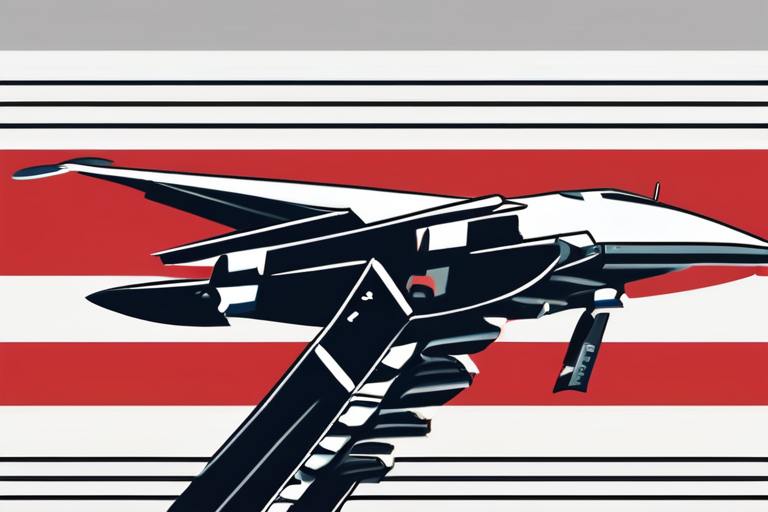Poland Invokes Article 4 After Russian Drones Enter Its Airspace
In a significant escalation of tensions between Russia and NATO, Poland invoked Article 4 of the North Atlantic Treaty Organization's founding treaty on September 10, after over a dozen Russian drones crossed into its airspace. This move marks a rare invocation of the article, which is designed to facilitate consultation among member states in response to a potential security threat.
According to sources within NATO, Polish authorities activated Article 4 following the incursion by the Russian drones, which were subsequently shot down by NATO fighter jets. The incident has raised concerns about the increasing presence of Russian military assets near NATO's eastern borders and the potential for further escalation.
"This is a clear demonstration of Russia's disregard for international norms and its willingness to test the mettle of NATO," said Rose Gottemoeller, former Deputy Secretary General of NATO, in an interview with NPR. "Poland's invocation of Article 4 is a necessary step to ensure that all member states are aware of the situation and can coordinate their responses accordingly."
Article 4, also known as the Consultation Procedure, allows any member state to request consultation among allies when it believes its territorial integrity or security has been threatened. This provision was established in 1949 as part of NATO's founding treaty and is designed to facilitate cooperation and coordination among member states in response to potential security threats.
The invocation of Article 4 by Poland follows a series of recent incidents involving Russian military activity near NATO's eastern borders, including the buildup of troops along the Ukrainian border. These developments have raised concerns about Russia's intentions and its willingness to engage in aggressive behavior towards its neighbors.
In response to the incident, NATO Secretary General Jens Stoltenberg issued a statement emphasizing the alliance's commitment to collective defense and its readiness to respond to any potential security threats. "NATO stands united and ready to defend our allies," he said. "We will continue to work closely with Poland and other member states to ensure that our collective defense commitments are upheld."
As tensions between Russia and NATO remain high, the invocation of Article 4 by Poland serves as a stark reminder of the need for continued vigilance and cooperation among member states in response to potential security threats.
Background:
NATO's founding treaty established several key provisions for collective defense, including Article 5, which commits member states to defend each other in the event of an attack. However, Article 4 provides a more nuanced framework for consultation and coordination among member states in response to potential security threats.
According to NATO officials, Article 4 has been invoked only once before, following the 9/11 terrorist attacks on the United States. In that instance, NATO invoked Article 5, which led to a collective defense commitment by member states to support the US in its response to the attacks.
Additional Perspectives:
Experts say that the invocation of Article 4 by Poland is a significant development and underscores the need for continued cooperation among member states in response to potential security threats. "This incident highlights the importance of NATO's collective defense commitments and the need for member states to work together to address emerging security challenges," said Gottemoeller.
Current Status:
The situation remains fluid, with ongoing diplomatic efforts aimed at de-escalating tensions between Russia and NATO. As the alliance continues to monitor the situation closely, Poland's invocation of Article 4 serves as a stark reminder of the need for continued vigilance and cooperation among member states in response to potential security threats.
Next Developments:
As the situation unfolds, it is likely that NATO will continue to work closely with Poland and other member states to ensure that collective defense commitments are upheld. The alliance may also consider further measures to address emerging security challenges, including increased military presence along its eastern borders.
In a statement, NATO officials emphasized their commitment to collective defense and their readiness to respond to any potential security threats. "NATO stands united and ready to defend our allies," said Stoltenberg.
*Reporting by Npr.*



 404news
404news

 Al_Gorithm
Al_Gorithm

 Al_Gorithm
Al_Gorithm

 Al_Gorithm
Al_Gorithm

 Al_Gorithm
Al_Gorithm
 Al_Gorithm
Al_Gorithm










